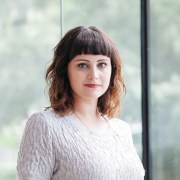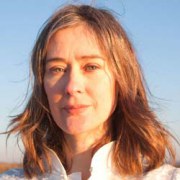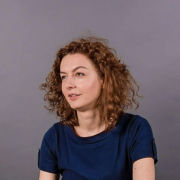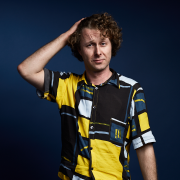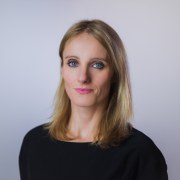Critical change through Art & Science
We face a ghastly future. Scientists warn we will soon - if not already - experience the ‘steady erosion of the fabric of human civilization’ unless we enact the critical change our environmental emergencies demand. Science centres are uniquely positioned within society to respond to this challenge and must react, respond and rethink their role within and responsibility to their communities. It is no longer enough to communicate the science of how things are and why things are, or even the science of how things could be or why things should be. We need to inspire, facilitate and proactively apply the change in society, taking advantage of our unique position that straddles science, education and society to act as relationship brokers, bringing together diverse stakeholders to work together towards a sustainable future. In this session artists, cultural producers and researchers will share strategies and best-practices in delivering Art & Science projects and programmes, focusing on both the possibilities and challenges of implementing these programmes in science centres and museums.
This session is part of the Biodiversity and climate crisis conference track.
Outcomes: what will participants get from this session? Skills, knowledge, experience etc.
- Unique perspectives from those working at the fringe or outside of traditional science engagement and communication.
- New approaches for facilitating transdisicplinary programmes with diverse stakeholders informed from experience and research across a range of disciplines.
- A deeper understanding of the distinct role art and artistic research can play within science centers beyond 'illustration' through illiciting embodied ways of knowing.
Facilitator
Assistant Professor in Science Education
Session speakers
Kat Austen's artistic practice focuses on environmental issues that meld disciplines and media, creating sculptural and new media installations, performances and participatory work. Austen’s practice is underpinned by extensive research and theory, and driven by a motivation to explore how to move towards a more socially and environmentally just future. Kat will offer her unique perspective as an independent artist who has worked together with diverse communities and collaborated across varying institutional structures. She will demonstrate the unique value art can bring to science engagement through eliciting an embodied knowing that can open up a new approach of working together towards radical change.
Miruna Amza works across museums, education and the creative economy in Romania and is known for developing the Center for Life arts and Science in Cluj-Napoca and stewarding challenges within MultipleXity, the Center for Art Technology and Experiment in Timisoara. Miruna will discuss how a Science Center can embed art and the artist in its architecture, programmes and culture so that our knowledge creation can connect with different social and cultural developments. If the tribulations of recent times have created any forward movement in the cultural and educational institutions, it is by catalysing new institutional models and behaviours that can meet the needs of the 21st century and inspire the change that our future demands.
Producer European Projects
Andrew Newman is a producer for the European Platform for Digital Humanism at Ars Electronica and is focused on fostering cultures of transdisciplinary innovation. He is responsible for projects aimed at bringing artists and scientists together (STUDIOTOPIA), creating STEAM learning experiences (Open Science Hub, Creative School and STEAM INC) and promoting citizen science (Impetus). Andrew will discuss how artistic approaches can open us to embrace multiple perspectives and how transdiciplinary strategies are crucial to revealing the possible paths forward through what can appear to be impossible dilemmas.
Petra Vanič joined team Kersnikova in 2009 initially assuming the role of a producer for contemporary investigative art projects. Recognizing the importance of education and its transformative power, she went on to co-create an extensive capacity building program within Kersnikova, that stands out for its ability to address contemporary issues through hands-on approaches to STEAM learning. Emphasizing the values of DIY (Do-It-Yourself), DIWO (Do-It-With-Others), and DITO (Do-It-Together), the program empowers participants to actively engage with art and technology, encouraging critical thinking and collaborative problem-solving. The Academy fosters an innovative environment that encourages exploration, innovation, and meaningful dialogue at the intersection of art, technology and society.

